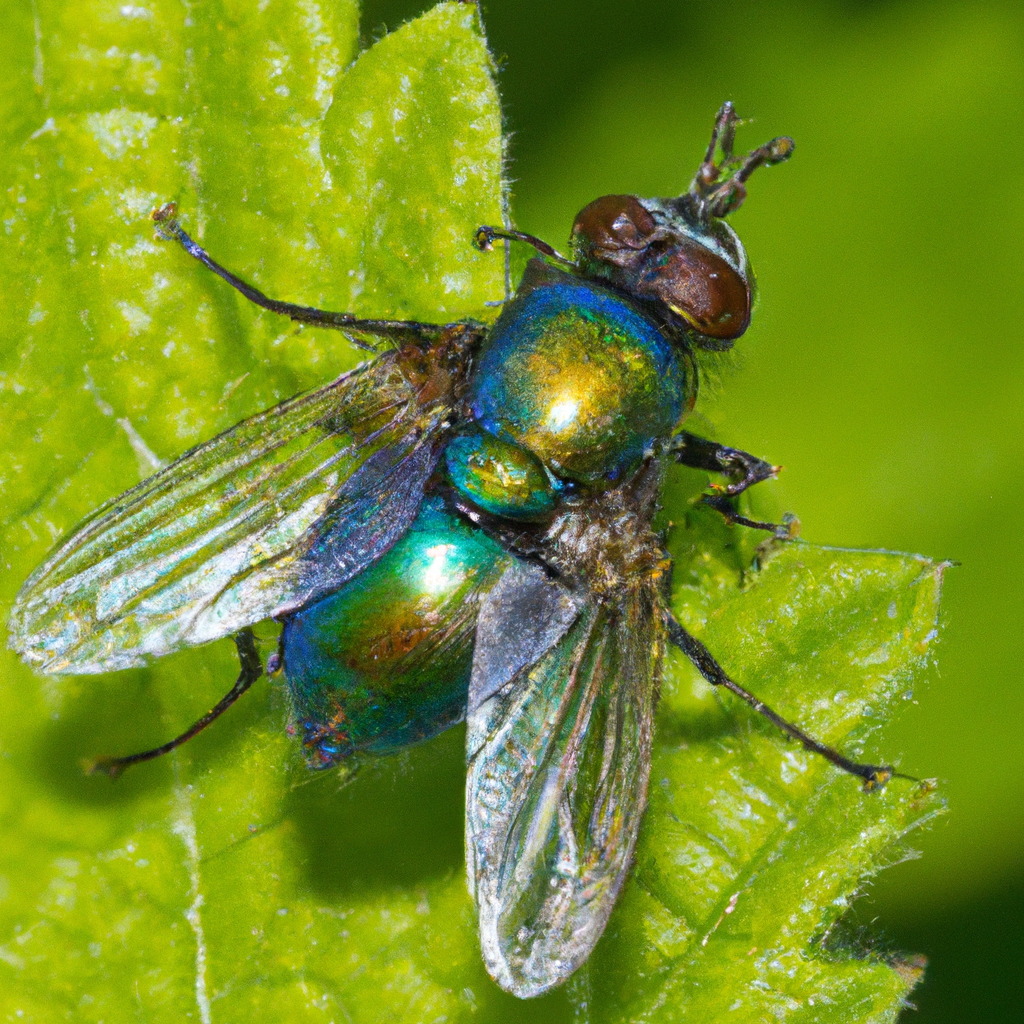Ah, the pesky black flies that seem to always find their way into your home. These tiny insects can be quite a nuisance, buzzing around and causing annoyance wherever they go. But fear not, for in this article, we will explore the various ways to identify these bothersome creatures and how to effectively control their presence within the comfort of your own household. No longer will you have to endure the annoyance of these uninvited guests. Let’s dive into the world of black flies and learn how to regain control of your space.
Understanding Black Flies
Black flies are small, dark-colored insects that belong to the family Simuliidae. They are commonly found in many parts of the world, including North America, Europe, and Asia. These pesky insects are known for their painful bites and can be a nuisance to both humans and animals. Understanding their behavior, habitat, and health risks associated with them is essential in dealing with black flies effectively.
Identifying Black Flies
Black flies are usually small, measuring only 1 to 5 millimeters in length. They have a stocky body, short legs, and most notably, their wings are broad and fan-like. The males of some species have eyes that are larger and meet in the middle, giving them a distinct appearance. In contrast, the females have eyes that are widely separated. These flies are typically black or dark gray, earning them their common name.
Behavior and Habitat of Black Flies
Black flies thrive in areas with flowing water, such as rivers, streams, and creeks. They are particularly active during the warmer months, from late spring to early fall. These insects are known to be persistent biters, and they tend to be most active during the day. However, some species are also active at dusk and dawn. Black flies are attracted to carbon dioxide, heat, and motion, making them more likely to target animals and humans.
Health Risks Associated with Black Flies
Black Fly Bites
Black fly bites can be both annoying and painful. When a black fly bites, it pierces the skin and feeds on the blood. The saliva injected by the fly can cause itching, swelling, and redness around the bite site. While most people may only experience mild reactions to black fly bites, some individuals may be highly sensitive, leading to severe allergic reactions.
Diseases Transmitted by Black Flies
In addition to the discomfort caused by their bites, black flies can also transmit diseases to humans and animals. One of the well-known diseases transmitted by black flies is onchocerciasis, also known as river blindness. This parasitic disease affects the skin and eyes, leading to severe itching, skin rashes, and visual impairment. Black flies can also transmit other diseases, such as leucocytozoonosis, which affects birds, and certain types of filariasis.

Preventing Black Flies
Preventing black flies from entering your home and minimizing their presence is crucial to protect yourself and your household. Here are some measures you can take:
Eliminating Breeding Sites
Black flies lay their eggs in swiftly flowing water bodies. By reducing stagnant water sources around your property, such as ponds or buckets, you can eliminate potential breeding sites. Ensure that gutters are clean and not clogged, and empty any containers that collect water regularly.
Securing Doors and Windows
To keep black flies from entering your home, make sure all doors and windows have screens in good condition and are properly sealed. Check for any gaps or cracks that may serve as entry points and seal them promptly.
Using Screens and Nets
When spending time outdoors, particularly during peak black fly activity, using screens and nets can offer a physical barrier against these insects. This can be especially helpful during summer months when black flies are most prevalent.
Keeping the House Clean
Maintaining a clean and clutter-free living space can discourage black flies from gathering indoors. Regularly vacuuming, sweeping, and removing any food or organic matter can minimize their attraction and presence.
Using Insect Repellents
Applying insect repellents containing DEET or picaridin can be an effective way to deter black flies. Make sure to follow the product instructions and reapply as needed. Additionally, wearing light-colored, long-sleeved clothing and tucking pants into socks can provide extra protection.
Natural Remedies for Black Flies
While chemical control options are widely available, some individuals prefer natural remedies to deter black flies. Here are a few natural options you can try:
Essential Oils
Certain essential oils, such as citronella, lavender, eucalyptus, and lemongrass, are known for their insect-repellent properties. Diluting these oils with a carrier oil and applying them to your skin or using them in diffusers or candles may help keep black flies at bay. However, it’s important to note that essential oils may not provide the same level of efficacy as chemical insect repellents.
Herbal Sprays
Creating homemade herbal sprays using ingredients like garlic, neem oil, or peppermint can be a natural alternative for repelling black flies. These sprays can be applied to your skin, clothing, or even sprayed around the areas prone to black fly activity. It’s important to do a patch test before applying these sprays to ensure there are no adverse reactions.
Homemade Traps
Setting up homemade traps can help reduce the black fly population in your immediate vicinity. A simple trap can be made by filling a container with soapy water and placing it near areas frequented by black flies. The flies will be attracted to the water, but the soap will prevent them from escaping, ultimately reducing their numbers.

Chemical Control Options
While natural remedies can be effective to some extent, chemical control options may be necessary for severe black fly infestations. Here are a couple of options to consider:
Insecticide Sprays
Insecticide sprays formulated specifically for black flies can help control their population. These sprays can be applied to outdoor areas where black flies are active, such as near windows, patios, or decks. It’s important to carefully follow the instructions provided and take necessary precautions to minimize exposure to people and pets.
Fogging and ULV Treatments
For larger areas or heavy black fly populations, fogging or ultra-low volume (ULV) treatments can be effective. These treatments involve using a fogging machine or specialized equipment to disperse insecticides as a mist, reaching areas where black flies may hide or breed. It’s essential to hire professional pest control services for fogging and ULV treatments to ensure proper application and safety.
Professional Pest Control
When dealing with extensive black fly infestations or if DIY methods have not been successful, seeking the assistance of professional pest control services can be beneficial. Here’s what you need to know:
Hiring a Pest Control Service
Finding a reputable pest control service that specializes in black fly removal is crucial. Look for companies with experience in handling black fly infestations and ensure they are licensed and insured. Ask for recommendations or read online reviews to select a reliable service provider.
Pest Control Treatments
Professional pest control companies have access to a range of effective treatments to eradicate black flies. These treatments may include targeted spraying, fogging, larvae control, or other methods suitable for your specific situation. A professional assessment of your property will help determine the most appropriate treatment plan.
Dealing with Black Fly Bites
Despite efforts to prevent black fly bites, it is still possible to experience them. Here’s what you can do to alleviate the discomfort:
Treating Bites at Home
If you get bitten by black flies, there are several remedies you can try at home. Applying a cold compress or ice pack can help reduce swelling and numb the affected area. Over-the-counter anti-itch creams or lotions containing hydrocortisone can provide relief from itching. Avoid scratching the bites, as it can lead to infection.
When to Seek Medical Attention
While most black fly bites can be managed at home, certain situations may require medical attention. If you experience severe allergic reactions, such as difficulty breathing, facial swelling, or dizziness, seek immediate medical help. Additionally, if you develop signs of infection, such as increased pain, swelling, redness, or pus, consult a healthcare professional.
Cleaning and Maintenance
Thorough cleaning and proper maintenance practices can help reduce black fly populations in and around your home. Consider the following steps:
Cleaning Infested Areas
If you notice black flies in certain areas of your home, such as basements or crawl spaces, it’s important to clean and disinfect these areas. Vacuum carpets, remove clutter, and ensure proper sanitation to eliminate any potential food sources for the flies.
Preventing Reinfestation
After eliminating black flies from your home, it’s essential to take preventive measures to avoid reinfestation. Regularly clean and inspect screens on doors and windows and repair any damages. Seal cracks and gaps in the foundation, walls, and roof to minimize entry points. Properly maintain your outdoor spaces by removing debris, cutting grass, and addressing any standing water issues.
Long-Term Solutions
To tackle black fly problems in the long run, addressing structural issues and making landscape modifications can be beneficial. Here are a few strategies to consider:
Addressing Structural Issues
Inspect your home for structural issues that may contribute to black fly infestations. Leaky pipes, damaged dampers, or inadequate ventilation can create a favorable environment for black flies. Fixing these issues will help reduce their presence and breeding opportunities.
Repairing Screens and Sealing Cracks
Damaged screens provide easy access for black flies to enter your home. Repair or replace torn or loose screens to create a barrier against these insects. Additionally, seal any cracks or gaps in the foundation, walls, and windows to prevent their entry.
Landscape Modifications
Modifying your outdoor landscape can significantly reduce black fly populations. Consider planting natural repellents, such as marigolds or lavender, around your property. Creating a barrier of vegetation between your home and water sources can also help deter black flies. Consult with a landscaper or gardening expert for advice on suitable plants and landscaping strategies.
Conclusion
Understanding black flies and implementing preventive measures is crucial for protecting yourself and your household from their nuisance and potential health risks. By identifying black flies, being aware of their behavior and habitat, and taking steps to prevent their presence, you can effectively control and manage black fly infestations. Whether through natural remedies, chemical control options, or professional pest control services, there are numerous solutions available to tackle black fly problems. With proper cleaning, maintenance, and long-term strategies, you can create a hygienic and comfortable environment, free from black fly infestations.




